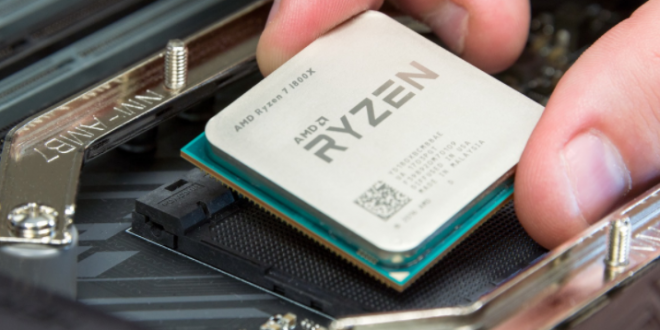The Ryzen CPU’s that have been released recently, of which the flagship, the 1800X, is claimed to equal or surpass Intel’s i7-6900k, which is a $1000 msrp, 8 core, 16 thread CPU, for a msrp of $500. It does indeed match the 6900k in processing & rendering, but in games, behaves similarly to a pair of quad cores, causing it to fall far behind its competitor in gaming, where the cores need to be communicating with one another to maximize the game’s framerates. The difference in the CPU world is akin to having two teams, one in India, and one in San Francisco. They can communicate, but the logistics and delay is about that level, whereas the true 8 core of the 6900k has all team members located in a single office.
The other drawback to choosing AMD over Intel for high-end CPUs is that AMD’s x370 chipsets do not support quad-channel memory, whereas Intel’s x99 chipsets do. While the speed difference is negligible for the majority of desktop users, it does make a difference in rendering, processing, as well as any other high-memory usage situations. It also lacks PCIe lanes, possessing only 16, of which Intel’s enthusiast x99 chipsets hold 28 for the i7-6800k, and 40 for rest. This isn’t a significant difference for most users, however, those planning to use PCIe SSD’s, multiple graphics cards, capture cards, networking cards, and usb cards will be limited by this. GPU’s prefer 16 lanes, though 8 lanes isn’t a significant difference. The rest take 4 lanes, and multiple GPU’s in tandem with these addons will hinder the function of the computer. Since these are consumer CPU’s, this matters more than for server CPUs, where the lower number of PCIe lanes can be compensated with simply having more machines and CPUs. Intel still dominates the server sector nearly completely, which AMD has yet to create a competitive offering for.
The main selling point of the AMD CPUs is simply that they are far cheaper than Intel’s current offerings for processing and rendering, though still unable to compete fully in the gaming sector. However, games tend to be handicapped more by the GPU than the CPU, and the differences tend to be relatively minor, assuming the rest of the system is identical.
 CTO 911 – Startup Consulting Services Silicon Valley Silicon Valley CTO Consulting
CTO 911 – Startup Consulting Services Silicon Valley Silicon Valley CTO Consulting



